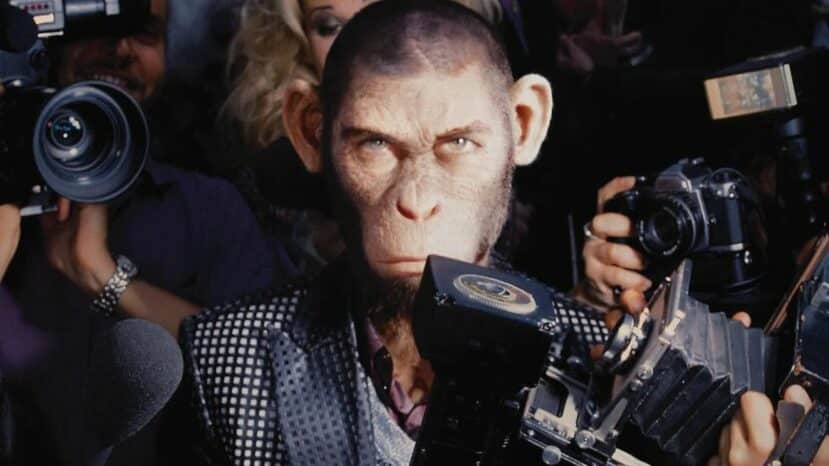Better Man, the atypical Robbie Williams biopic worth seeing

The biopic Better Man promises a singular dive into the life and career of Robbie Williams, the iconic figure of British pop. Directed by Michael Gracey, best known for The Greatest Showman, this hybrid of musical comedy and introspective drama is set to hit French cinemas on January 22, 2025.
A work that divides markets
Despite a career marked by 75 million record sales, Robbie Williams has never really won over the American public. The result was reflected in the disappointing figures for Better Man when it was released in the USA, with less than two million dollars in takings on a budget of 110 million. In the UK, on the other hand, its popularity remains intact, giving the film a better reception even though it is far from being a cultural phenomenon.
This disparity can be explained by the saturation of the music biopic market, forcing viewers to choose carefully which artists they wish to rediscover. Robbie Williams, for all his past success, belongs to a bygone era of 1990s boy bands, million-selling CDs and high-profile rivalries.
A biopic like no other
Better Man stands out for its bold approach. Rather than following the classic biopic model, it ventures into the unusual by depicting Robbie Williams as a digital monkey, animated by WETA, the renowned studio behind Planet of the Apes. The singer lends his voice as narrator, while Jonno Davies interprets his movements. This unusual choice reflects the complexity of Williams’ personality: exuberant, unpredictable and paradoxical.
The film also asserts itself as a musical comedy, in which Williams’ hits serve not only to trace his career, but also to express his emotions. Feel” accompanies a poignant scene about paternal abandonment, while “Rock DJ” features a frantic choreography on the streets of London, capturing the young artist’s meteoric and chaotic rise.
Visual and narrative exploration
Williams’ portrayal as a digital monkey offers unprecedented creative freedom, allowing for some visually spectacular sequences. One of the most striking scenes is an exhilarating sequence shot in which the star, at the height of his fame with Take That, juggles technical extravagance with raw energy. This artistic choice highlights Williams’ duality: an artist torn between his modest roots and his obsessive quest for greatness.
The film doesn’t just tell the story of a star; it also explores family tensions, in particular the complex relationship with his father. The latter, despite his mistakes, is not demonized but presented as a mirror, revealing his son’s inner struggles.
A critique of pop culture and a quest for redemption
Through the story of Robbie Williams, Better Man offers a critical look at 1990s pop culture and the destructive impact of boy bands on their members. The film captures the ups and downs of celebrity, from resounding success to a self-destructive spiral.
But he doesn’t lapse into cynicism. The final act shows a calmer Williams, finally finding a balance between his artistic ambitions and his personal life. This introspective journey, marked by a message of resilience and acceptance, is touching despite its classic happy ending structure.
A risky but endearing gamble
With Better Man, Robbie Williams proves once again that he’s never been afraid to take risks. This biopic, in the image of his personality, is audacious, sometimes disconcerting, but deeply human. It doesn’t simply glorify its subject, but reveals his contradictions, making him both fascinating and endearing.
The film, though intended to rekindle interest in Williams’ musical career, does not stop at this commercial objective. It opens the way to a reflection on the sacrifices demanded by fame and the relentless quest for recognition.
Also read: Severance season 2: the grand return of an underrated series




